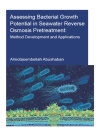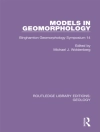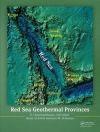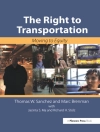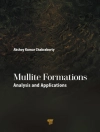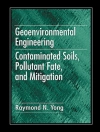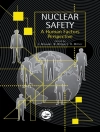The tragedy of the 2004 Indian Ocean tsunami has led to a rapid expansion in science directed at understanding tsunami and mitigating their hazard. A remarkable cross-section of this research was presented in the session: Tsunami Generation and Hazard, at the International Union of Geodesy and Geophysics XXIV General Assembly in Perugia, held in July of 2007. Over one hundred presentations were made at this session, spanning topics ranging from paleotsunami research, to nonlinear shallow-water theory, to tsunami hazard and risk assessment. A selection of this work, along with other contributions from leading tsunami scientists, is published in detail in the 28 papers of this special issue of Pure and Applied Geophysics: Tsunami Science Four Years After the Indian Ocean Tsunami. Part I of this issue includes 14 papers covering the state-of-the-art in tsunami modelling and hazard assessment. Another 14 papers are published in Part II focusing on observations and data analysis.
Daftar Isi
to “Tsunami Science Four Years After the 2004 Indian Ocean Tsunami, Part I: Modelling and Hazard Assessment”.- A Comparison Study of Two Numerical Tsunami Forecasting Systems.- The Effect of the Great Barrier Reef on the Propagation of the 2007 Solomon Islands Tsunami Recorded in Northeastern Australia.- Numerical Modeling and Observations of Tsunami Waves in Alberni Inlet and Barkley Sound, British Columbia.- Evaluating Tsunami Hazard in the Northwestern Indian Ocean.- A Probabilistic Tsunami Hazard Assessment for Western Australia.- Tsunami Probability in the Caribbean Region.- Scenarios of Earthquake-Generated Tsunamis for the Italian Coast of the Adriatic Sea.- Stromboli Island (Italy): Scenarios of Tsunamis Generated by Submarine Landslides.- Numerical Modelling of the Destructive Meteotsunami of 15 June, 2006 on the Coast of the Balearic Islands.- Validation and Verification of Tsunami Numerical Models.- An Efficient and Robust Tsunami Model on Unstructured Grids. Part I: Inundation Benchmarks.- Runup Characteristics of Symmetrical Solitary Tsunami Waves of “Unknown” Shapes.- A Tsunami Detection and Warning-focused Sea Level Station Metadata Web Service.- Long-Term Tsunami Data Archive Supports Tsunami Forecast, Warning, Research, and Mitigation.


